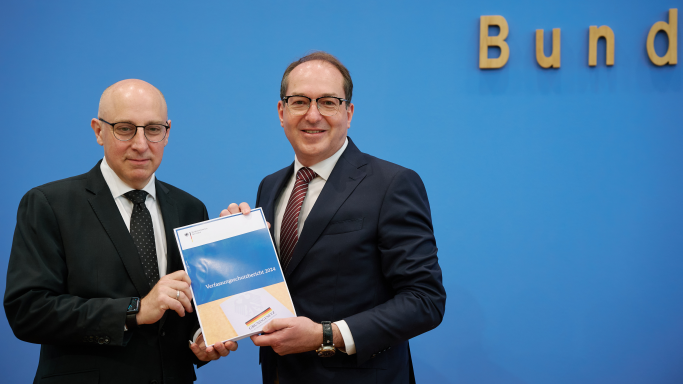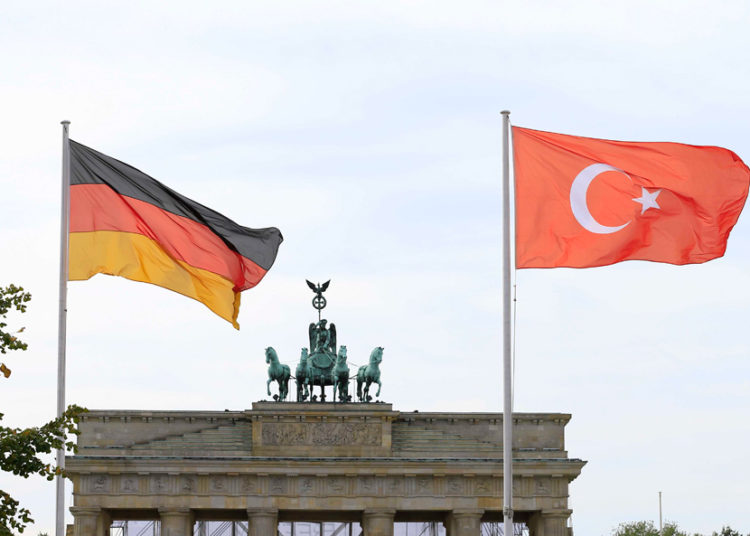Levent Kenez/Stockholm
A German government report has accused Turkish intelligence of operating covertly within its borders, targeting opposition groups and diaspora organizations critical of Ankara. The claims are detailed in the 2024 annual report by the Federal Office for the Protection of the Constitution (BfV), which describes ongoing surveillance and influence efforts by Turkey’s National Intelligence Organization, MİT.
The report states that Turkish intelligence services are conducting information-gathering operations that focus primarily on individuals and groups perceived to be in actual or presumed opposition to the current Turkish government.
German authorities classify these intelligence activities as transnational repression, with MİT using both official and informal means to gather personal data, observe meetings and events and exert influence across Turkish diaspora communities.

The Union of International Democrats (UID), the long arm of Turkish President Recep Tayyip Erdogan in Europe, is identified as the most prominent pro-government Turkish lobbying group engaged in political influence. Founded in 2004 the UID maintains close ties to Turkey through regular meetings with Turkish government officials and representatives of the ruling Justice and Development Party (AKP).
According to the BfV, the UID played a significant role in mobilizing voters during the Turkish parliamentary and presidential elections of May 2023. The organization is cited for having considerable mobilization power and for attempting to shape political opinion within the Turkish diaspora in Germany.
The BfV emphasizes that Turkish intelligence operations remain high-level in scope and continue to prioritize opposition figures and dissidents. These efforts are described not just as surveillance but also as part of broader influence strategies aimed at manipulating community dynamics and political discourse in Germany.
“Influence operations by Turkish state-aligned organizations are expected to continue,” the report states. “Such operations have the potential to impact political decision-making processes in Germany.”
According to the BfV, MİT utilizes a network of official diplomatic personnel, informal collaborators and voluntary informants to collect intelligence in Germany. Some people are said to provide information about compatriots who engage in political, religious or journalistic activities critical of the Turkish government.

The agency notes that intelligence collected in Germany is frequently transmitted to Turkish authorities, where it has reportedly formed the basis for legal and administrative actions such as arrests, detentions and travel bans. These practices are viewed as infringing not only on Germany’s sovereignty but also on the rights of individuals residing within its borders. According to the report information is typically obtained through recruited agents or individuals who voluntarily provide details about community members. The consequences of such intelligence gathering are tangible, with numerous cases reported of individuals facing legal repercussions upon traveling from Germany to Turkey.
The report states that the presence of a large number of people of Turkish origin in Germany, along with numerous Turkish organizations and institutions, offers ample opportunities for clandestine information-gathering by Turkish intelligence agencies. These activities are allegedly supported by Turkish diplomatic missions in Germany, which play a role in collecting, evaluating and transmitting information to authorities in Turkey.
The Gülen movement, a group critical of Erdogan, remains a primary focus of Turkish intelligence efforts. While legally operating in Germany, the group is labeled by the Turkish state as a terrorist organization. The BfV report states that Turkey continues to treat the movement’s members and supporters as priority intelligence targets. Individuals associated with educational institutions, media or business circles are particularly affected by Turkish surveillance and influence measures.
The outlawed Kurdistan Workers’ Party (PKK) is described in the report as the main enemy of the Turkish state and remains at the center of MİT’s surveillance operations. German authorities note that Turkey continues to pursue information on PKK structures, events and personnel located in Germany.
The PKK is also banned in Germany and considered a terrorist organization. According to the BfV, the PKK had approximately 15,00 followers in Germany in 2024. The group’s activities in Germany include public demonstrations, fundraising, media outreach and support for Kurdish regions abroad. The report warns that the PKK leadership aims to maintain operational capability in Germany and is also monitored by German authorities.
Text of the 2024 report by the Federal Office for the Protection of the Constitution (BfV):
In addition to the PKK, the BfV also flags the presence of Turkish right-wing extremist movements in Germany. The Ülkücü movement, often referred to as the “Grey Wolves,” is described as the most significant Turkish right-wing extremist group in the country.
Its largest umbrella organization is the ADÜTDF (Federation of Turkish-Democratic Idealist Associations in Germany), which follows a nationalist to extremist ideological line aligned with Turkey’s Nationalist Movement Party (MHP), which supports the Erdogan government.
According to the BfV, the ADÜTDF is strictly hierarchical, operates across 15 regions and consists of more than 200 associations. The total membership is estimated at around 11,000 people in Germany. Although the organization publicly avoids open hate speech, the report notes that nationalist and ethnic supremacist narratives are often reinforced internally. Antisemitic and anti-Armenian attitudes as well as hostile rhetoric toward Kurds and Greeks are documented in publications and online content tied to the movement.
MİT’s activities are classified as “intelligence operations on behalf of a foreign power” and are under close counterintelligence scrutiny. The BfV warns that Turkish intelligence and influence operations pose a serious risk to Germany’s democratic order and public security. Although the report does not cite specific prosecutions, it shows how seriously German authorities treat such unauthorized surveillance and interference.
Calling for continued vigilance and coordinated protective measures, the German agency emphasizes that these activities represent a sustained challenge to national sovereignty, one that cannot be tolerated under Germany’s constitutional framework.












